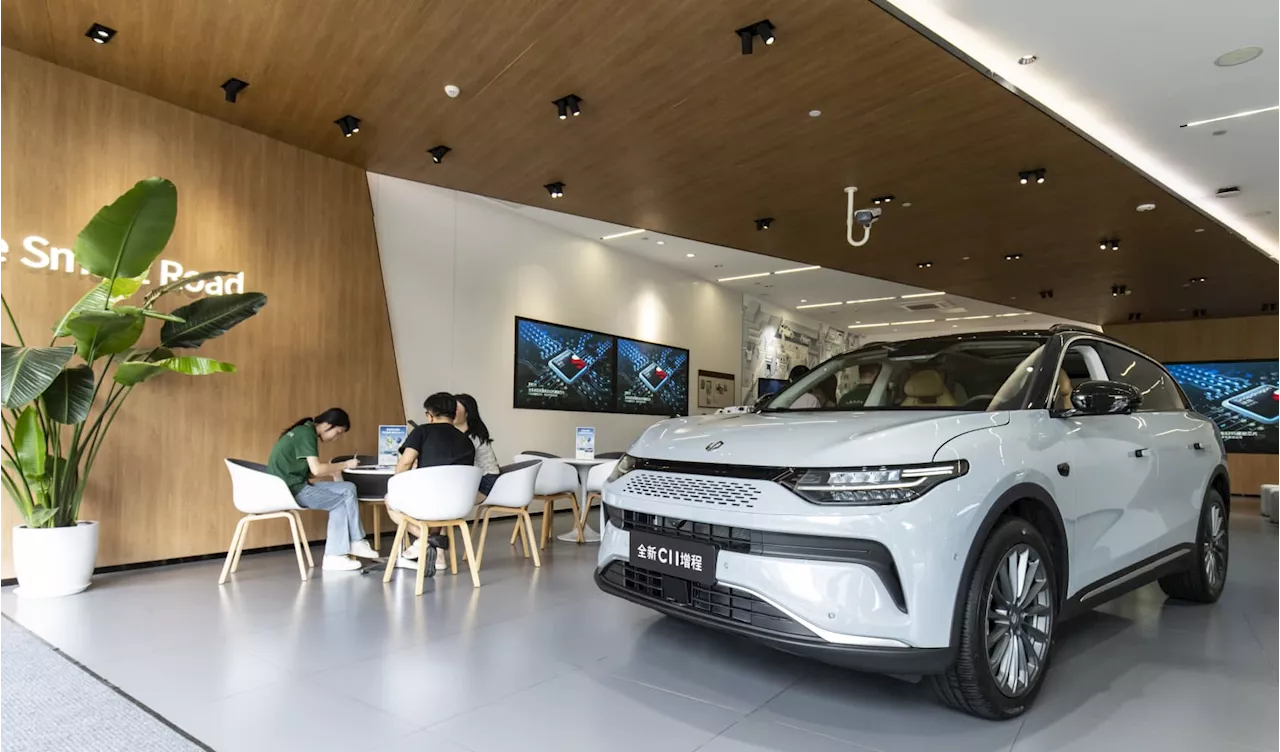Chinese companies are rapidly developing AI applications that go beyond chatbot functionality, impacting business, consumer technology, and regulatory landscapes.
Chinese companies are rapidly advancing in the field of artificial intelligence (AI), with numerous releases last week showcasing their progress in developing models that rival OpenAI's ChatGPT. While ChatGPT initially captured global attention for its chatbot capabilities, Chinese companies are now pushing beyond this realm, focusing on building products that leverage AI for a wider range of applications.
On the business front, Gartner research director Ben Yan estimates that over 10% of businesses in China are currently utilizing AI, a significant increase from 8% just six months ago. This accelerated adoption rate suggests that China's AI sector is developing at a comparable pace to the United States. One notable example is Baidu, China's leading search engine, which announced that its AI-powered Wenku platform for creating documents like presentations has reached 40 million paying users. Revenue for Wenku climbed by 60% year-over-year by the end of last year. Baidu continues to refine its platform with new features, including the ability to generate presentations based on a company's financial filings.The integration of AI agents, capable of automating entire processes, is further accelerating AI adoption in China. Tencent CEO Pony Ma revealed plans to integrate AI agents with WeChat, the ubiquitous messaging and social media app. These agents can handle tasks ranging from searching for information to booking appointments, streamlining workflows for businesses and individuals alike. Chinese smartphone companies, such as Honor, Xiaomi, and Vivo, are also making strides in incorporating AI features into their devices. Unlike Apple's iPhones in China, which lack advanced AI functionalities, these domestic smartphones offer a more seamless user experience thanks to AI models optimized for on-device processing. This approach minimizes reliance on cloud services and enhances performance.
Artificial Intelligence China AI Development Chatgpt Business Applications Smartphone Integration Regulatory Landscape
United States Latest News, United States Headlines
Similar News:You can also read news stories similar to this one that we have collected from other news sources.
 China's AI Boom: From Chatbots to Agents and BeyondChinese companies are rapidly developing AI applications that surpass chatbot functionality, focusing on areas like business intelligence and e-commerce. The regulatory landscape in China fosters innovation, but challenges remain in data sharing and commercial utilization of AI-generated content.
China's AI Boom: From Chatbots to Agents and BeyondChinese companies are rapidly developing AI applications that surpass chatbot functionality, focusing on areas like business intelligence and e-commerce. The regulatory landscape in China fosters innovation, but challenges remain in data sharing and commercial utilization of AI-generated content.
Read more »
 Chinese AI applications now have bigger aims — they're looking beyond chatbotsA slew of releases in the last week demonstrate how Chinese companies have moved quickly with AI models that compete with OpenAI's ChatGPT.
Chinese AI applications now have bigger aims — they're looking beyond chatbotsA slew of releases in the last week demonstrate how Chinese companies have moved quickly with AI models that compete with OpenAI's ChatGPT.
Read more »
 Cardano (ADA) Price Surge: Can ADA Reach $1 and Beyond?Cardano (ADA) is experiencing a significant price surge, fueled by a massive increase in trading volume and bullish sentiment from the community. Analysts predict ADA could surpass December's peak and potentially reach new all-time highs in the future.
Cardano (ADA) Price Surge: Can ADA Reach $1 and Beyond?Cardano (ADA) is experiencing a significant price surge, fueled by a massive increase in trading volume and bullish sentiment from the community. Analysts predict ADA could surpass December's peak and potentially reach new all-time highs in the future.
Read more »
 Norovirus Cruise Outbreaks Surge Amidst Winter SurgeA rise in norovirus outbreaks on cruise ships has been reported this winter, with the Queen Mary 2 experiencing a significant infection rate. The CDC reports a higher number of outbreaks compared to previous years, raising concerns about the spread of this gastrointestinal illness.
Norovirus Cruise Outbreaks Surge Amidst Winter SurgeA rise in norovirus outbreaks on cruise ships has been reported this winter, with the Queen Mary 2 experiencing a significant infection rate. The CDC reports a higher number of outbreaks compared to previous years, raising concerns about the spread of this gastrointestinal illness.
Read more »
 China's EV Surge: A Threat to American Automakers?Chinese automakers are rapidly dominating the electric vehicle market, surpassing U.S. manufacturers in production and innovation. This rise is fueled by government support and a focus on affordability and performance, posing a challenge to American jobs and industry dominance.
China's EV Surge: A Threat to American Automakers?Chinese automakers are rapidly dominating the electric vehicle market, surpassing U.S. manufacturers in production and innovation. This rise is fueled by government support and a focus on affordability and performance, posing a challenge to American jobs and industry dominance.
Read more »
 China's Hybrid Vehicle Surge Outpaces Battery-Only CarsDespite the global trend towards electric vehicles, China is witnessing a surprising preference for hybrid models. Market data reveals that BYD, the leading Chinese automaker, sold over half its vehicles in 2024 as hybrids, a stark contrast to the previous year. This trend extends to other Chinese carmakers, with those offering both hybrid and battery-only options outperforming pure electric vehicle startups.
China's Hybrid Vehicle Surge Outpaces Battery-Only CarsDespite the global trend towards electric vehicles, China is witnessing a surprising preference for hybrid models. Market data reveals that BYD, the leading Chinese automaker, sold over half its vehicles in 2024 as hybrids, a stark contrast to the previous year. This trend extends to other Chinese carmakers, with those offering both hybrid and battery-only options outperforming pure electric vehicle startups.
Read more »
